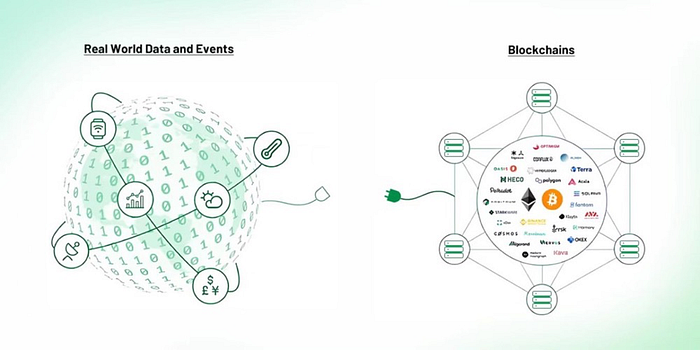On May 24th, according to The Wall Street Journal, Elon Musk stated at the CEO Council Summit in London that it is necessary to venture into the AI business to compete with Google and Microsoft. Musk hinted that Twitter might be part of his efforts to create an AI business, and Tesla has been utilizing AI to enhance its advanced driver-assistance features. Twitter and Tesla could potentially become partners in an AI company, similar to the relationship between Microsoft and OpenAI.

World APP: Product of AI Era Identification Card
Recently, Sam Altman, the creator of ChatGPT, has made another move. On May 8th, local time, Worldcoin, a cryptocurrency company founded by Sam Altman, announced the launch of its latest product — the World App cryptocurrency wallet. The World App has undergone extensive development and learning with over 1.5 million users in its beta testing phase. The first phase of the World App has been released globally and is available for download and use in over 80 countries regions.
The World App has ambitious goals and aspirations. The team behind it aims to enable billions of people worldwide to obtain decentralized identities and access decentralized financial systems through this application. The World App is not only the first crypto wallet that natively supports the Worldcoin ecosystem, but also a breakthrough innovation. In its initial stages, it is built on the Ethereum sidechain Polygon, providing users with a gas-free transaction experience.

The design team TFH behind World App has ambitious goals. World App is evolving into a toolkit that empowers individuals in the age of artificial intelligence. These tools are uniquely supported by decentralized technologies to address identity privacy issues, including identity verification, access to native internet financial services, fair global distribution of digital currencies, governance of public goods, and ultimately leading towards AI-supported Universal Basic Income (UBI).
As artificial intelligence becomes more widely used, the proliferation of fake and anonymous accounts on the internet will intensify. AI excels at mimicking human behavior by generating text, deep fakes, or bypassing common verification methods, making it increasingly difficult to distinguish between human and bot/fake accounts. Identity authentication becomes an urgent problem that needs to be addressed.
As an open and permissionless identity protocol, World ID serves not only as a global digital passport but also enables anonymous proof of uniqueness, allowing individuals to prove “you are you” without revealing privacy. Clearly, World ID adopts the concept of proof of personhood, addressing two problems caused by AI: preventing sybil attacks and minimizing the spread of misinformation generated by AI.

There is no doubt that after creating the groundbreaking masterpiece ChatGPT, the success of the new project World App in ushering in a new wave of the Web3 era remains to be seen and further tested by time and the cryptocurrency market. However, the launch of this project may indeed signify the impending arrival of a golden age for Web3.
AI+Oracle: The Data Value Miner
Currently, blockchain applications are predominantly seen in purely digital and online fields, such as gaming and advertising industries. However, when it comes to offline sectors and the real economy, blockchain technology faces challenges in the conversion and verification of offline-to-online and online-to-on-chain transactions. This is where AI technology excels.
AI-powered distributed oracles can swiftly and efficiently gather and assess offline and off-chain information, enabling the integration of the real economy with blockchain systems. This integration allows the blockchain to better serve offline sectors, bridging the gap between the digital and real worlds and accurately conveying the value and demands of tangible assets on the blockchain.

As a dedicated cross-chain oracle public chain focused on aggregation, PlugChain incorporates on-chain AI capabilities. This allows it to provide AI computing and invocation services while ensuring the security and integrity of the invoked code through trusted computing technologies. Additionally, PlugChain utilizes on-chain indexing for trusted AI computing services, unlocking the value of on-chain data and enabling better application within the ecosystem.
For instance, PlugChain can leverage on-chain AI technology to establish automated trading strategies and trading bots, offering users efficient trading and investment support. This integration of AI and blockchain technologies opens up new possibilities for advanced financial services and enhances the overall ecosystem experience.

Moreover, PlugChain integrates on-chain AI with oracle services, providing users with the most accurate on-chain data and enabling the system to understand which data is requested the most. This information is used to update the models accordingly. By combining a series of official ecosystem components such as GxSwap, Pando, Very5, as well as external ecosystems, PlugChain not only drives AI-powered trading algorithms but also checks for security risks in smart contracts, ensuring efficient and stable returns.
Additionally, PlugChain integrates a payment channel (PUSD) based on the stablecoin ecosystem, simplifying the combination of Web3 and AI. In terms of content production, PlugChain leverages AI content integration to create a vast niche market for Very5 (in the NFT domain). By improving the efficiency of NFT minting and providing effective value assessment based on historical data and asset quality, it offers the best NFT experience for everyone.
It can be said that oracles solve the problem of AI data collection, while AI addresses how data is “used.” PlugChain perfectly solves both of these issues through the “AI+Oracle” combination. This is quite rare in the market for public chains focusing on specific sectors. Perhaps, this is an important reason why PlugChain can achieve significant progress.

Let’s imagine that although the current Web3 is in its early stages, it has yet to fully embrace broader applications or create significant value. With the integration of AI, DApps can leap to the next stage, where they can come closer to the level of Web2 applications. This closeness is not about making them functionally similar, but about leveraging the value of Web3 to enhance user experience and possibilities.
In this future scenario, AI+Oracle becomes not only a data value miner but also an enabler for Web3 to reverse engineer “Web2”. It makes Web3 applications as convenient, intelligent, and flexible as Web2 applications by harnessing the value of Web3.
In conclusion: AI is still in its early stages within the Web3 world. However, there is no doubt that the maturity and widespread adoption of AI will elevate the value of Web3 to new heights. Technically, Web3 can provide unique infrastructure for AI, while AI serves as a crucial tool for transforming the production relationships within Web3. The combination of the two can unlock numerous possibilities, making it an exciting and imaginative space to explore.
